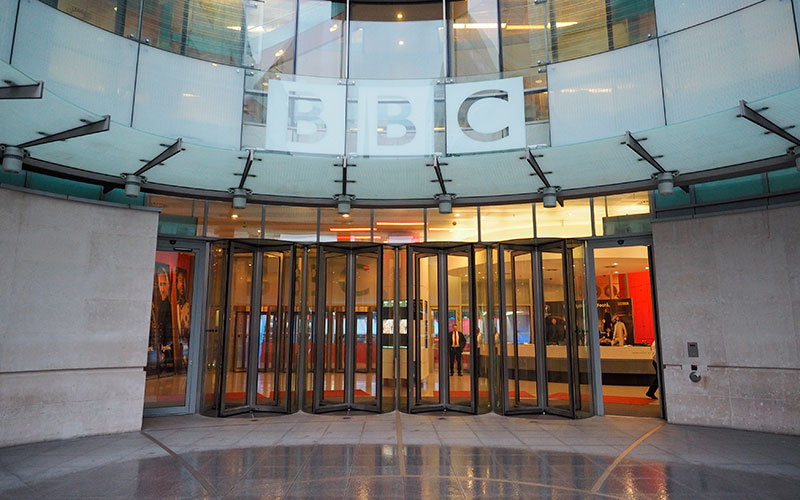IR35 raises more questions as BBC presenters lose test case

Three BBC presenters have lost an IR35 case against HM Revenue & Customs.
The Telegraph reports the presenters – Joanna Gosling, David Eades and Tim Willcox – were pursued by HMRC for £920k as part of a crackdown on the use of personal service companies (PSCs).
While the trio had argued that they were self-employed, the court ruled in a split decision, resolved on a casting vote, that “the assumed relationships were ones of employment” as the BBC told the presenters how, where and when to work.
For their part, the BBC has acknowledged responsibility for the contracts and has said it will help to resolve the cases. The paper adds two-thirds of the bill is understood to have been settled already and, of the remaining figure, around £200k is employers’ National Insurance, which the BBC is under pressure to settle.
Gosling, Eades and Willcox said they were disappointed by the result of the case, which they described as “an exhaustive battle lasting eight years”.
Julia Kermode, CEO of The Freelancer & Contractor Services Association (FCSA), a professional membership body for umbrella employers and accountancy service providers supporting the financial affairs of professional contractors, said the case illustrates the unfairness of making IR35 determinations without expert help.
She explained that as two tribunal judges took opposing views, and the verdict was decided on a casting vote of another judge, “surely this just goes to illustrate how unfair it is to expect businesses to make IR35 determinations in the light of off-payroll legislation due in 2020”.
“If judges can’t reach an easy conclusion, how on earth can firms without access to expertise be able to reach a conclusion?
“It is a debate that has been running for some years within the BBC but overlooks the many genuine self-employed freelancers and contractors who have chosen to work for themselves in line with current and correct tax legislation. Individuals choosing to be self-employed are in a very different position of security to someone who is a permanent employee with all the accompanying statutory rights and benefits…
“We dispute that PSCs are a mechanism to avoid tax; they are a perfectly legitimate way of someone being in business on their own account, which some people prefer to being a sole-trader because it separates business and personal liabilities.”
Seb Maley, CEO at tax advice and insurance provider Qdos, said he thought it was of real concern that at present, these individuals look like they will be made to pay vast sums to HMRC, despite the judges finding they were ‘forced’ into working as self-employed by the BBC.
“The onus should be on the engager to settle, not the presenters, who it’s very difficult to label as guilty.
“With around 100 other BBC presenters in the same boat, we could see similar verdicts in time. However, each case needs to be examined on its own merit. And if it’s decided the BBC left someone with no choice but to work outside IR35, then these individuals must be helped financially.
“Bear in mind that the BBC example is a rare one and isn’t reflective of a typical contractor engagement. Therefore, albeit worrying, genuinely self-employed contractors who have set or had their status set with care, do not need to panic.
“With further IR35 reform approaching, companies engaging contractors should take note. No firm should force individuals into a working arrangement purely for its own benefit. IR35 status must be assessed fairly. In doing so, situations like this will be avoided.”
Dave Chaplin, CEO of contracting and freelancing authority ContractorCalculator, accused HMRC of failing to grasp the simple concept that there is a freelance premium, and because of this, freelancers end up generating more in tax by operating this way compared to employment.
“HMRC should be thanking freelancers for their contributions, not victimising them as tax avoiders using this cruel legislation.
“Deemed employment” is an ideological fiction invented by HMRC in an attempt to overtax the self-employed, who are already generating more tax than their employee counterparts.
“Anyone who has tried to hire a plumber to fix a water leak will know that they do not charge 1/365th of a salaried plumber for one day’s work. It’s the same with all freelancers. They earn more, and they generate more tax. So, what’s the problem?”
In response to the ruling, an HMRC spokesperson said: “HMRC welcomes the judgement that the presenters are within the intermediary rules; this builds on previous related First Tier Tribunal decisions.
“Employment status is never a matter of choice; it is always dictated by the facts and when the wrong tax is being paid we put things right.
It is right that an individual who works through a company, but would have been an employee if they were taken on directly, pays broadly the same amount of tax and National Insurance contributions as employees.”
If you are in further doubt, you can still view last week’s Qdos/Recruiter’s ‘How to manage IR35 (off-payroll working) in the private sector’ webinar for free here.
• Comment below on this story. You can also tweet us to tell us your thoughts or share this story with a friend. Our editorial email is [email protected]




